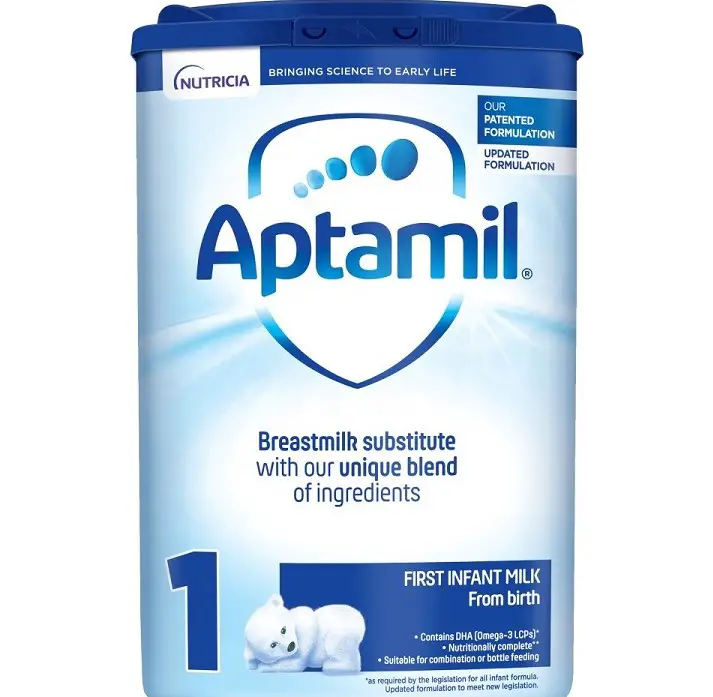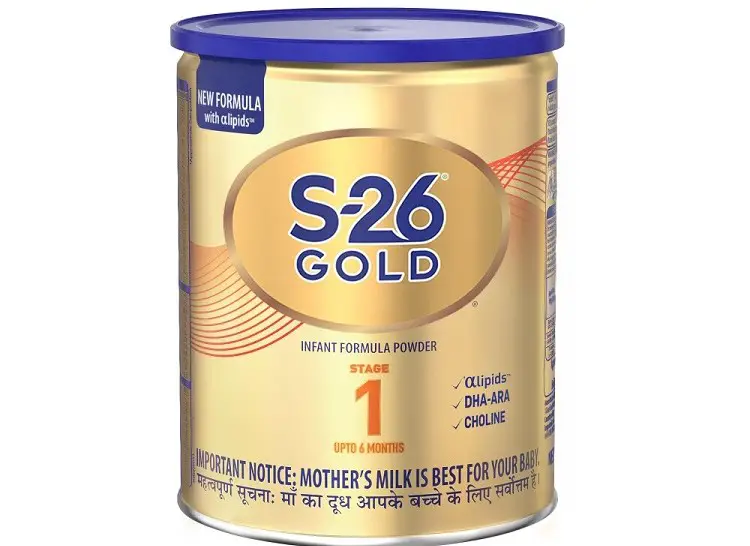Taking a walk around the formula session of any local store, you’ll see a variety of baby’s formulas stacked on the shelves of the formula session of the local store.
If you are a parent without an informed choice of formula, you will get confused about what to buy and what not to buy, but when you have an informed choice of what to buy, you will get to the stacked shelf and pick up what you want, and leave.
Surfing the internet for information like Aptamil vs S26 will help you get the information you need, and this article will be helpful to you.
Why Choose a Formula?
The fact that exclusive breastfeeding for babies at least until they are 6 months of age remains the ideal, but sometimes there are reasons why most mothers who use formula before their babies clock 6 months do so.
Some might be using it to supplement their low breast milk production or due to illness. Others have other reasons best known for skipping it.
It is best that you have information on what you want for your baby and then finds the particular brand of formula that suits them.
It is also necessary to compare formulas so that you can know their similarities and discrepancies and, if possible, speak to your baby’s healthcare provider.
Aptamil vs S26 – Features, Pros & Cons
Aptamil

This baby formula has to its credit many years spent in an infant’s early life research and the knowledge gained in its manufacture.
This great nutritionally rich infant formula was allegedly manufactured after 50 years of research by its manufacturers.
Aptamil formula is a nutritionally complete formula that can be used solely as your baby’s milk source or combined with breast milk to serve as a top-up.
The product is also environmentally friendly and has many positive reviews; as a result, it is sought after globally. It is suitable from birth and as part of a weaning diet from 6 months.
Features
- Contains DHA that supports baby’s normal brain development
- Nutritionally complete
- It can serve as a milk substitute.
- Some of their products support the dietary requirements of babies diagnosed with colic, reflux, and cow’s milk allergy.
- It has a unique taste that can entice your baby’s taste buds.
- It contains Iron and folic acid.
- Contains nucleotides
- It promotes the growth of healthy bacteria.
- It contains probiotics and prebiotics.
- It contains galactooligosaccharides (GOS) and fructooligosaccharides (FOS)
- Supports gut bacteria
- Contains Whey protein
- Contains DHA/ARA
- Discourages the growth of harmful bacteria
- Contains vitamins
Pros
- It promotes the growth of healthy bacteria.
- It contains probiotics and prebiotics.
- It is Easy to digest
- It is Gluten free
- Some are Non-GMO while some variants are GMO
- Helps with colic
Cons
- It is expensive
- Can make your baby gassy
- There are chances of clumping.
- It has fish oil that may be allergic and vegan unfriendly.
- It contains palm-reduces calcium and fat absorption.
Read: Aptamil vs Enfamil – Which is Better?
S26

This formula is a baby’s formula designed to be suitable for infants right from birth and is ideal for their growth and development.
Parents can use this formula for exclusive formula feeding or formula supplementation. The formula contains many nutrients the new baby needs for holistic development.
Many families depend on S26 for the nutritional nourishment of their kids and believe that the nutrients in S26 will help their babies with strong and healthy growth.
Whenever S26 is mentioned, excellence naturally comes to mind because, over the years, it has been associated with excellence and is one of the highest-quality formulas available.
They offer various products, from newborn formula to soy alternatives.
Features
- It is whey-dominant infant formula.
- 1.3grams protein/100ml
- whey: casein 60:40
- It has partially hydrolyzed proteins.
- It contains aliphids (alpha lipids), a whey protein ingredient derived from a unique process that results in the retention of phospholipids, including sphingomyelin, an essential component of the brain cell membrane.
- It contains DHA, Iron, and Choline that support a baby’s normal brain development.
Pros
- It is gentle on the stomach.
- It doesn’t cause constipation.
- It contains DHA/ARA, which is good for infants’ eyes and brain development.
- It contains nutrients that support immunity.
- It is budget-friendly
- Whey is well tolerated in its formulation.
- It is easier to digest
- It comes in convenient stick packs.
- It has great taste
- The vitamin A in it helps in supporting normal vision development.
- It contains proteins for normal muscle growth.
- It contains selenium that helps in the normal functioning of the immune system.
- It has Vitamin D, which is essential for healthy bones.
Cons
- Some parents have complained of constipation in their kids after taking S26.
Aptamil vs S26 – Similarities & Differences
Similarities
- Both products have formulas suitable for babies under 6 months.
- Both products contain vitamins.
- Both products contain minerals.
- Both contain DHA/ARA
- Both contain whey proteins.
- Both contain Iron
- Both can serve as a breast milk substitute.
Differences
- Aptamil contains Probiotics and prebiotics, which is lacking in the S26 formula.
- The smoothness of preparation of Aptamil is better than S26.
- Aptamil has a vanilla taste, while such flavor is lacking in S26.
Related Posts:
- Enfamil vs S26
- Aptamil vs Nutrilon
- S26 Gold vs NAN Optipro
- S26 vs Similac – Which is Better?
- Kendamil vs Aptamil – Which is the Best?
Final Verdict
I am sure your question on Aptamil vs S26 has been answered, and you can make a better choice, right?
You should choose what you feel is the best for your baby and, or seek the advice of your baby’s pediatrician and then follow their advice.
The two products can serve as a breast milk substitute; if you feel any suits your baby, you can go for it. Always observe your baby’s reaction to a product before using it.
